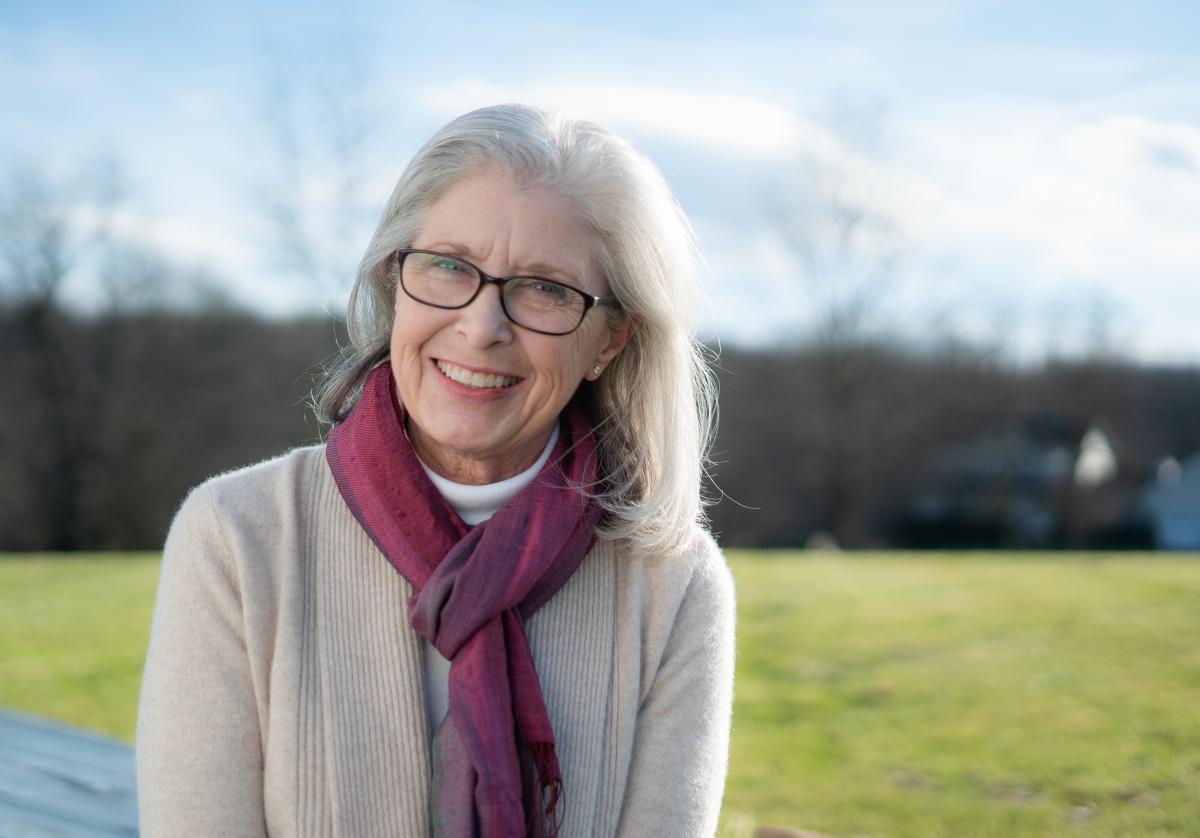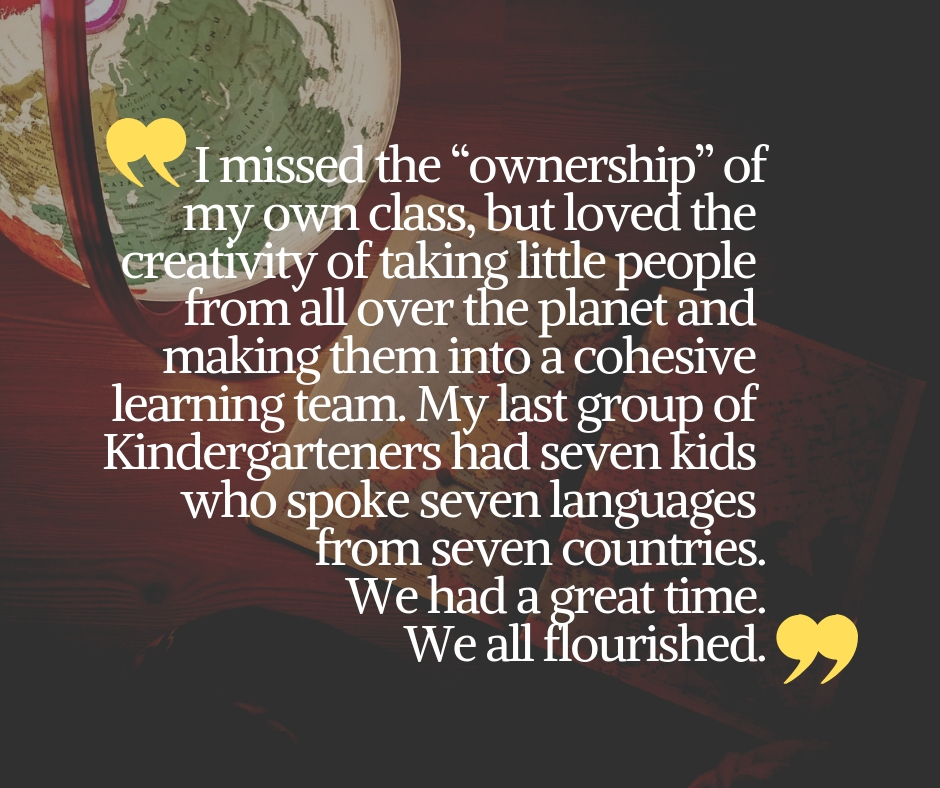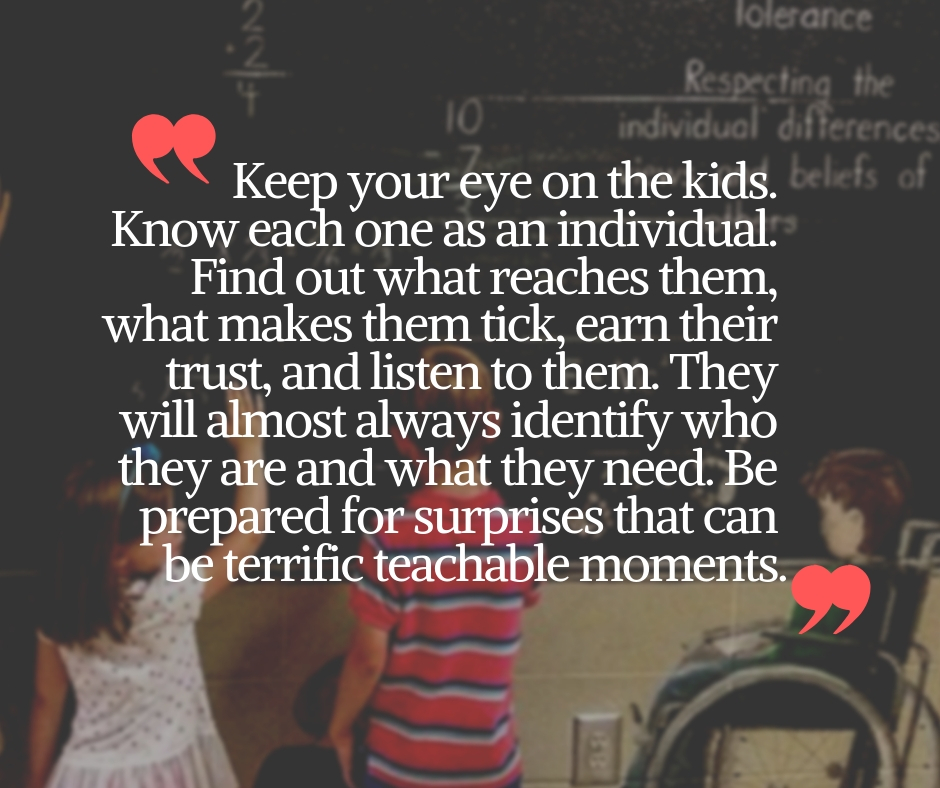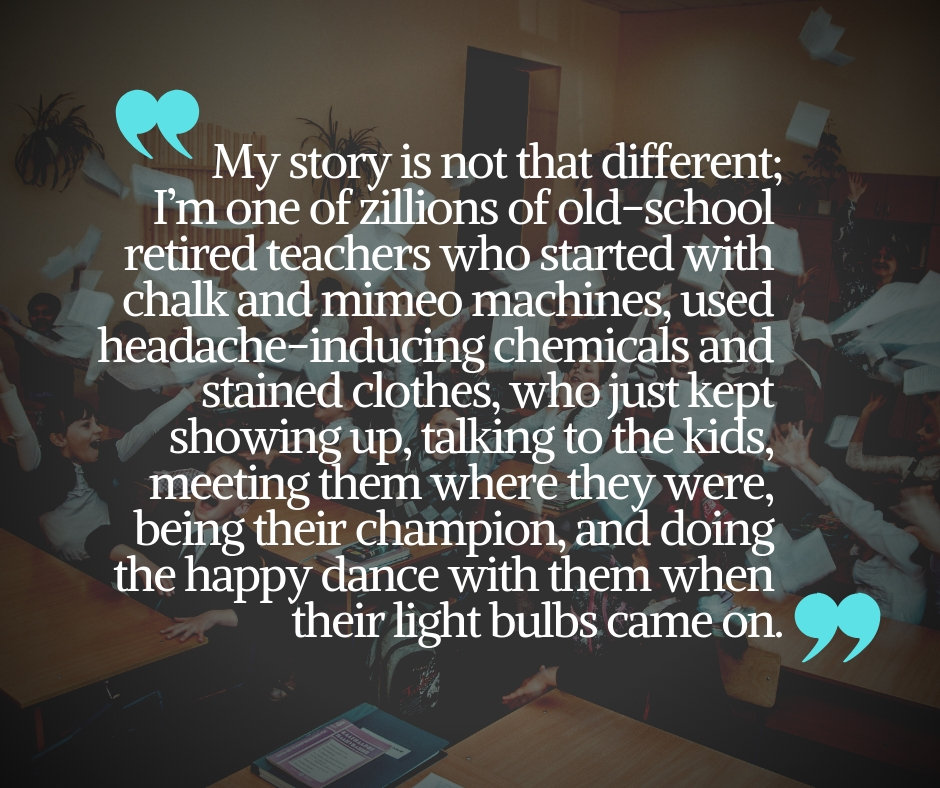posted February 26, 2019 - written by Molly Rutter, SOE Graduate Assistant
 Ann Morgan is a Buffalo State graduate, recently retired after 40 years in elementary classrooms, teacher training, and teaching English for Speakers of Other Languages. Morgan has worked as a writer, editor and educational consultant for the state of Maryland, Oxford University Press, the Library of Congress, Discovery Education, and the National Institutes of Health.
Ann Morgan is a Buffalo State graduate, recently retired after 40 years in elementary classrooms, teacher training, and teaching English for Speakers of Other Languages. Morgan has worked as a writer, editor and educational consultant for the state of Maryland, Oxford University Press, the Library of Congress, Discovery Education, and the National Institutes of Health.
Morgan is also the author of Teaching English Language Learners: A Handbook for Elementary Teachers, which provides a thorough picture of English language learning, as well as practical strategies for education staff who work with elementary English Language Learners. A course is being created based off the book and will be offered in summer of 2020 on Advancement Courses, an online small-university consortium that provides professional development courses for teachers.
Check out Morgan's website and Facebook page to learn more about her endeavors!
In the following interview, Morgan shares her experience as a Buffalo State student, as well as her advice, teaching philosophy, and insight in the field of elementary education and English language learning.
My family had three kids in college at the same time, so we were all part of the affordable SUNY system. My older sister and I liked Buffalo from our high school years there, so we chose Buffalo State.
I have fond memories of my time as a Buffalo State student. I remember the snow, and sledding on cafeteria trays from the Towers, in-through-out of Scajaquada, and down the hill on the other side. I also did a lot of plays in my freshman year, and I remember getting to breakfast super early on weekends to fill my purse with donuts for the play production cast and crew.
One of the highlights of my Buffalo State experience was participating the Siena study abroad program for the first semester of my sophomore year. Siena was one lovely adventure after another. I made lifelong friends, and it was the impetus for me to return to Europe to start my teaching career.
Because of Buffalo State I went to Siena, and because of Siena, I went to London and stayed for three years, and because of London I was one of only nine teachers hired in a huge system in 1978, where I stayed and stayed and stayed until I knew enough to retire and put some of it into a book.

When I went to college, women generally became teachers, nurses, or librarians. My parents chose my career path, but I stayed on it. My favorite part was always the kids. When I left the classroom to become an English for Speakers of Other Languages (ESOL) specialist, I missed the “ownership” of my own class, but loved the creativity of taking little people from all over the planet and making them into a cohesive learning team. My last group of Kindergarteners had seven kids who spoke seven languages from seven countries. We had a great time. We all flourished.
The often-uninformed albatross of policy, money, administration, etc. that stymies and frustrates school-based personnel sometimes made it hard to remember why I was there. I had a very long career, so had to periodically shift my focus and find new ways to continue to love what I was doing. It was also hard to realize that not every grade or team or school is a good fit, but it’s OK to change what isn’t working.
I had come from a quite regimented elementary and high school background, so it was great to find out at Buffalo State that classrooms could be fun, interactive, and meaningful. I also learned not to give glue and glitter to first graders unless they are closely supervised, as well as how to get a little kid to give up his gum.
I had some professors who were real sticklers, but they taught me that preparation and attention to details are more important than they sometimes seem, and can have long-reaching domino effects.
I couldn’t thank my advisor, Dr. Henry Dowski, enough, when I was a junior getting ready for student teaching. I wanted to go back to Europe, but it wasn’t an option. Dr. Dowski listened to my arguments and worked with me for most of a school year to help me become the first student from Buffalo State to go abroad for student teaching. I was in London when my class graduated, so Dr. Dowski mailed me a tassel from a mortarboard. I still have it.

More work, more kids, fewer teachers, fewer resources that all trickle down to classrooms where there are kids (and teachers) struggling with English language acquisition while they try to grasp content. Teachers are pulling their hair out because of the insanely unrealistic academic expectations for these students and their classroom teachers.
Personally, I raised a child with every combination of alphabet identifier - ADHD, GT/LD, OCD - and another with dyscalculia and school anxiety. The Gordian Knots of learning needs. But they were in there somewhere, and when we finally figured out what was needed and how to get it, they soared. Most of the time I had to remind myself that neither one was doing anything bad or wrong - it was happening to them and they didn’t like it, either. I became a pretty good observer/analyzer and a fierce advocate. Go, Mom! I was lucky to see the problems from both sides of the academic equation.
My primary motivation was always to raise my own children to be thoughtful, productive contributors. They turned out GREAT - one works for NASA and the other at the National Library of Medicine at the National Institutes of Health. I thought that when I retired, I would feel less compelled to make some kind of positive difference in the school experience. That hasn’t changed, although now I do it through materials that I write for teachers. It’s important to me to do my best, and to do what I can to help school folks with their own goals. The words of Arthur Ashe live in my head, “Start where you are, use what you have, do what you can.”
I have a couple more professional book titles that I’d like to tackle, and a few emerging/struggling/ELL reader stories to publish. Each story is leveled and has ancillary materials for teachers but is a fun read for kids. One collection stars my older sister’s bulldog. Strange Animal Stories From Aunt Peggy’s House. I’m also working on the second, revised edition of my book The International Space Station (written for the Young and Curious. Just the facts, Ma’am.)
To succeed in education, it takes persistence, patience, humor, good colleagues, snow days, and coffee. Always have Plans B and C ready. Keep your eye on the kids. Know each one as an individual. Find out what reaches them, what makes them tick, earn their trust, and listen to them. They will almost always identify who they are and what they need. Be prepared for surprises that can be terrific teachable moments. And stay away from the STUFF among staff and families.

Some content on this page is saved in PDF format. To view these files, download Adobe Acrobat Reader free. If you are having trouble reading a document, request an accessible copy of the PDF or Word Document.
